
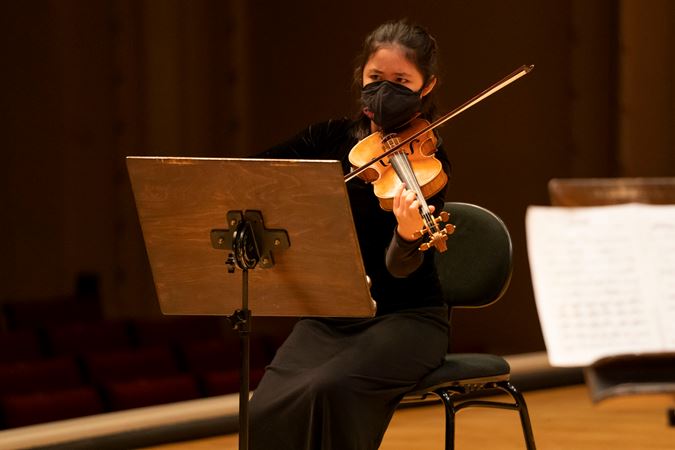
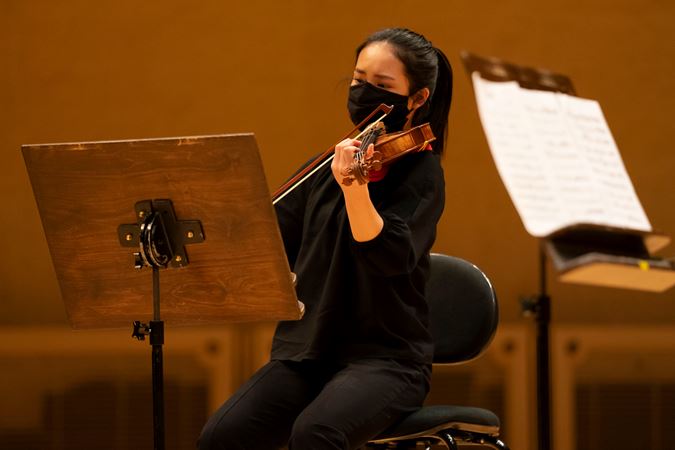
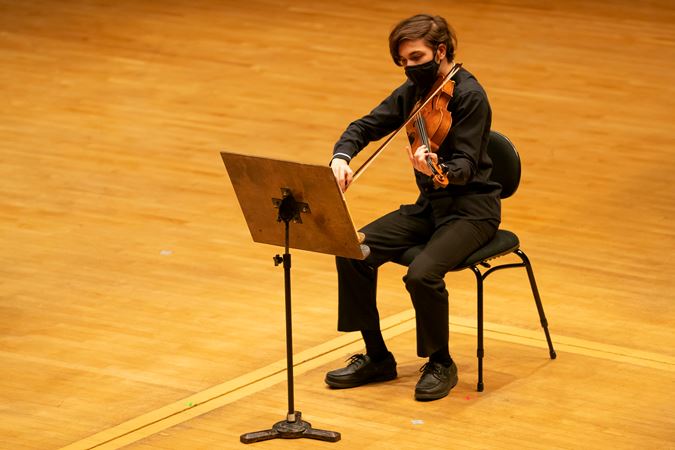
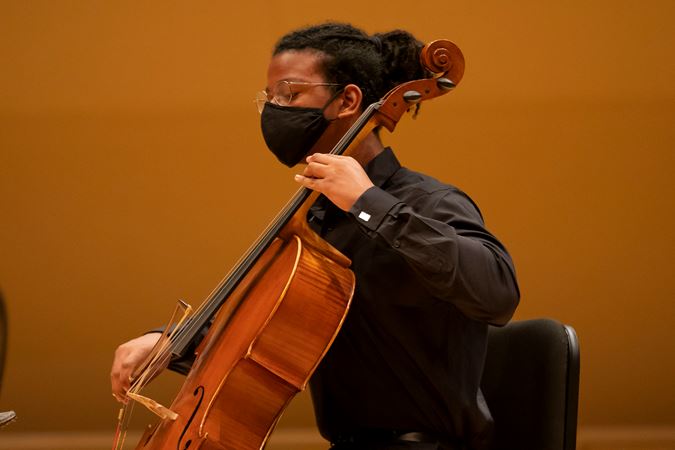
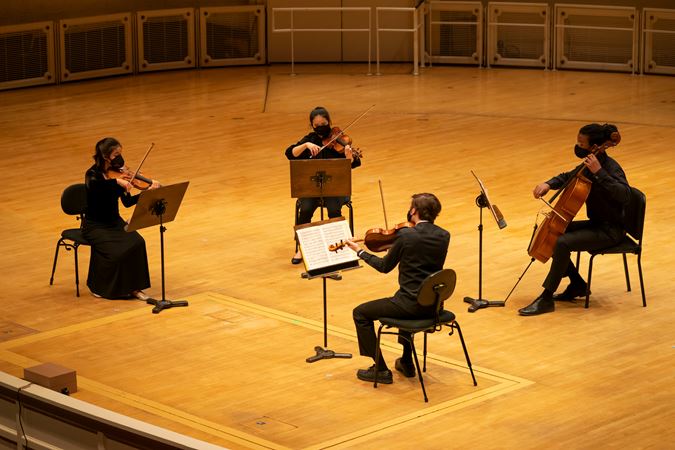
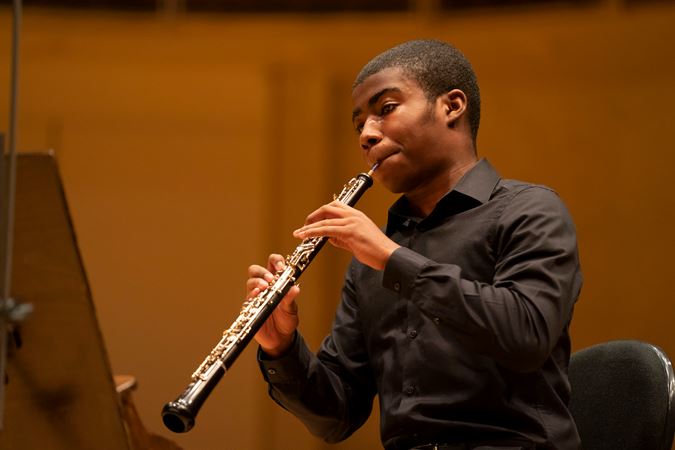
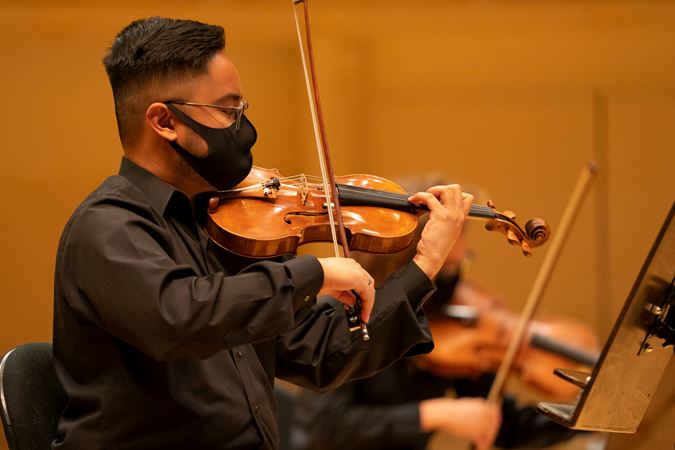
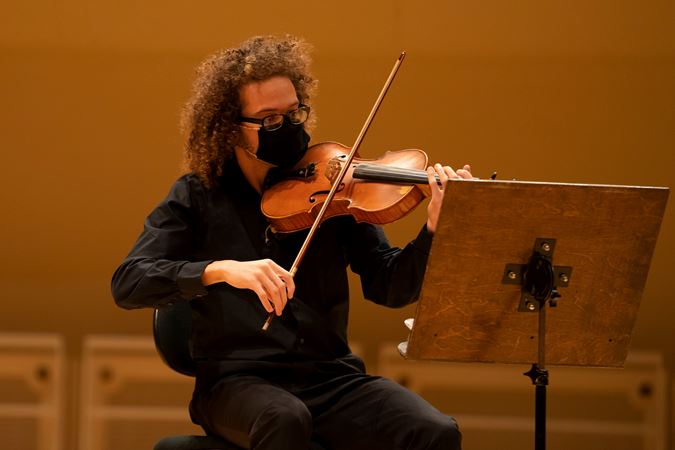
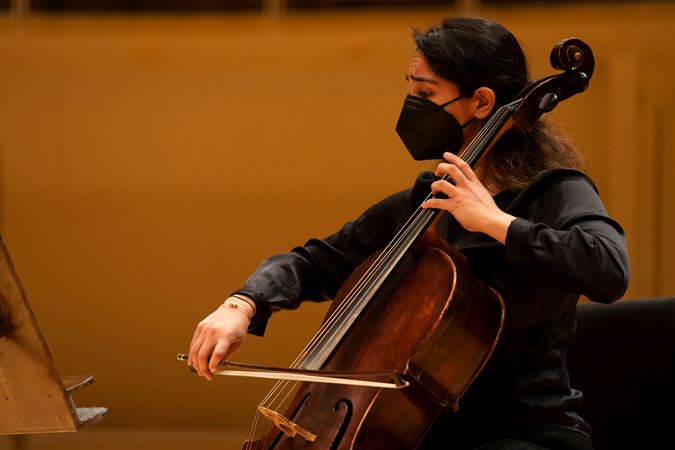
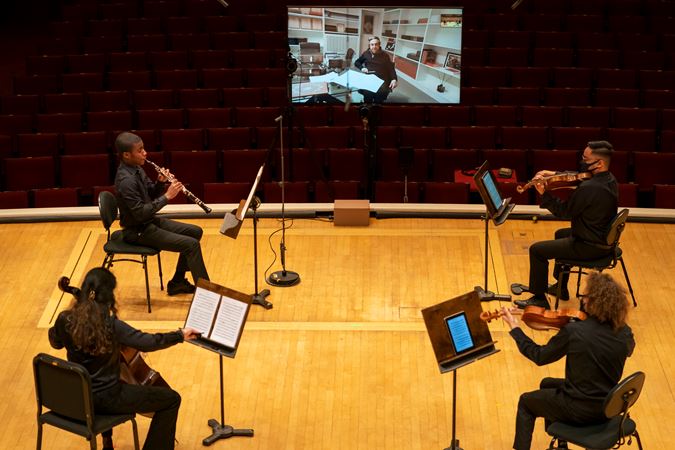
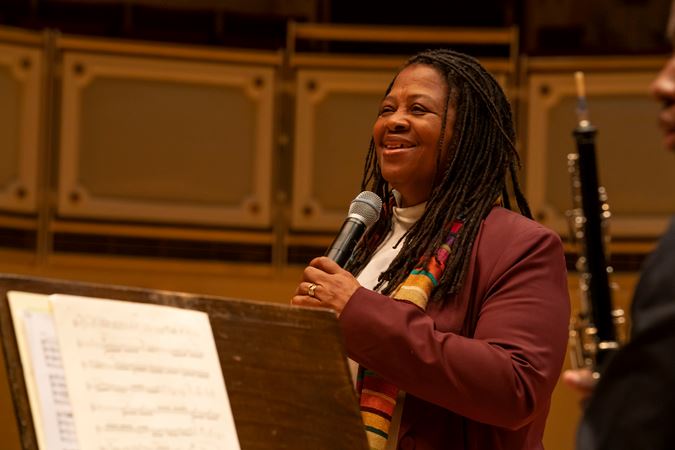
For aspiring young musicians, a coaching session with a musical luminary can offer a wealth of insights into the technical details, expressive nuances and historical context of the music they perform. Five fellows from the Chicago Musical Pathways Initiative (CMPI), all accomplished musicians in their teens, experienced such an opportunity when they performed chamber music in Orchestra Hall on March 31, with the Chicago Symphony Orchestra’s Zell Music Director Riccardo Muti coaching virtually from Italy.
Since the beginning of his tenure as music director in 2010, Muti has been committed to mentoring young musicians and to making music more accessible for communities across the Chicago area. To these ends, the CMPI coaching session was made available via Zoom webinar to local music schools and youth orchestra musicians, as well as senior and community centers and veterans groups. More than 220 households tuned in to the free virtual event, hosted by the Negaunee Music Institute at the Chicago Symphony Orchestra.
Founded in the 2019/20 season, CMPI’s mission is to identify and develop gifted and motivated orchestral students from underrepresented backgrounds for acceptance into top-tier conservatory, college or university classical music programs in preparation for careers as professional musicians. The CSO’s Negaunee Music Institute is one of nine CMPI Advisory Council partner organizations. CMPI is part of a multi-city consortia, funded by the Andrew W. Mellon Foundation, with the shared goal of diversifying American orchestras.
In their coaching session with Maestro Muti, CMPI fellows performed selections from Verdi’s String Quartet in E Minor and Mozart’s Oboe Quartet. The fellows were joined by current and past members of the Civic Orchestra of Chicago and Chicago Sinfonietta Project Inclusion Fellowship, who serve as CMPI mentors.
Having rehearsed their repertoire since February, the musicians were grateful to play together onstage during a time when live performances are rare. “It was so amazing to come to Symphony Center,” says violinist Esme Arias-Kim, a CMPI fellow and finalist in the 2020 Crain-Maling Foundation CSO Young Artists Competition. “I haven’t been here in a year, and it brought back so many memories being in the hall.”
“The kids were so excited to have the opportunity [to perform],” adds Adrienne Thompson, founding project director of CMPI. “It was a glimmer of light in darkness.”
While coaching the first ensemble, Muti drew on his expertise in Italian opera. He explained that Verdi’s String Quartet in E Minor features a melody from the composer’s opera Aida — specifically from a scene that depicts Amneris’ jealousy toward Aida — and he encouraged the students to channel this dramatic emotion in their interpretation of the music.
“We all did research on the piece and the composer beforehand … but that was something that none of us had found,” says cellist and CMPI Fellow Jonathan Miller. “One of the things I learned today was to really do a lot of research on the pieces.”
The second ensemble, performing Mozart’s Oboe Quartet, featured CMPI Fellow Zachary Allen in the work’s prominent oboe part. “One thing that [Muti] emphasized a lot was bringing out the joy,” says Allen. “His general demeanor during the whole coaching session made it feel more fun and not stressful. Mozart isn’t supposed to be stressful.”
For Civic Orchestra of Chicago violinist Brent Taghap, mentoring CMPI fellows is an important way to support younger musicians, just as his own mentors helped him while growing up. “My mentees are super brilliant, and they’re such a pleasure to work with,” he says.
Reflecting on the coaching session, Taghap says, “Maestro Muti talked about how times are really tough right now, and the world seems very dark. But culture — and particularly music — is what’s really going to help us put everything back on track. Every single time I’ve worked with Maestro Muti, he’s said something to that effect, and that’s always stuck with me. I really admire that that’s such a part of his philosophy, and I’m really glad that the [CMPI] fellows got to hear that.”
Despite the technical challenges of sharing music across continents, the virtual coaching session proved to be meaningful for the CMPI fellows, their mentors and Maestro Muti alike. In his farewell to the musicians and audience, Muti said, “It’s a great honor for me to work with these talented students and players.” For Esme Arias-Kim, “Playing for the maestro was one of the highlights of my musical career.”




